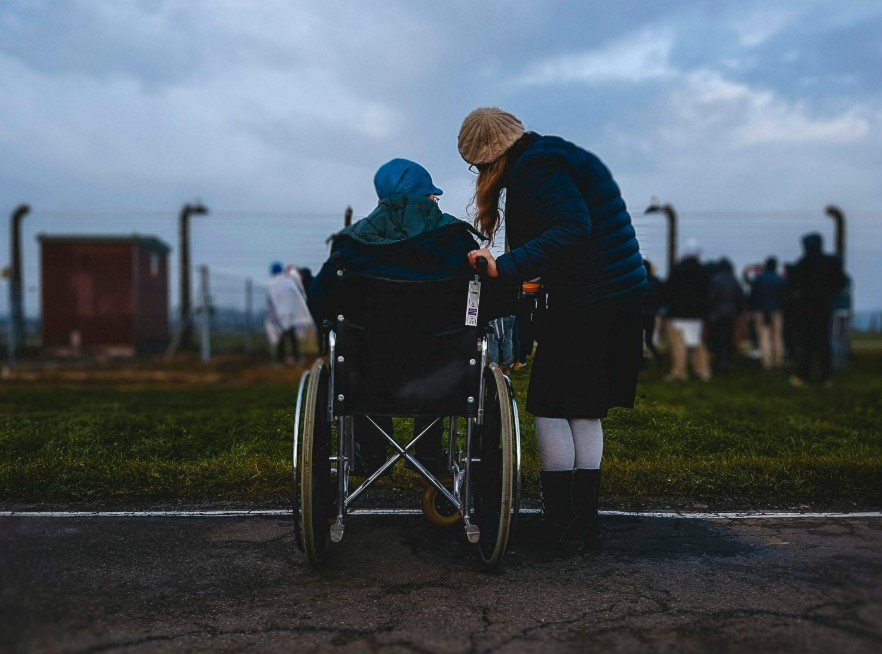Health
What Families Should Consider When Choosing Support

Finding the right support for an elderly loved one is a crucial decision that affects not only their well-being but also the peace of mind of the entire family. With many different care options available, knowing what to look for can make the process less overwhelming. Families often face the challenge of balancing practical needs, emotional comfort, and financial realities, all while ensuring that their loved one receives compassionate, respectful care.
Understanding the Individual’s Needs
The first step in choosing the right support is identifying the specific needs of your loved one. This involves considering both their medical requirements and daily living assistance. Some individuals may only require companionship or help with tasks like meal preparation, while others may need more comprehensive support, such as medication management or mobility assistance. Taking the time to assess these needs ensures that families can select a service that offers the right level of care without being too limited or excessive.
It is also helpful to involve the older adult in this discussion, where possible. Their voice should remain central to the decision, ensuring they feel respected and included in shaping their care.
For more information about available support, visit this page to see how professional care services can provide peace of mind and compassionate assistance for your family.
Considering the Type of Care
Families must decide whether home-based support or residential care is best suited for their situation. Home care enables individuals to remain in their familiar surroundings, maintaining independence while receiving assistance at home. This option is often more comforting for those who value routine and the sense of security their own environment provides.
Residential care, on the other hand, may be necessary when complex medical needs or constant supervision are required. Each option has its advantages, and families should weigh the benefits alongside the personal preferences of their loved one.
Evaluating Quality and Standards
When choosing a care provider, quality should never be compromised. Families should thoroughly research providers, examining their reputation, reviews, and any relevant official inspections or accreditations. High standards of care ensure that elderly individuals are treated with dignity, kindness, and professionalism.
Speaking directly with care staff or managers can also provide reassurance. It allows families to ask questions about training, policies, and daily routines, ensuring that they are entrusting their loved one to people who genuinely care for them.
Emotional Support and Companionship
Beyond physical needs, emotional well-being is an equally important factor. Loneliness and social isolation are common challenges among older adults, and the right care provider should prioritize companionship and support. Whether through conversation, activities, or simply offering a consistent presence, carers play a crucial role in keeping spirits high. Families should consider whether the support available includes time for personal connection, rather than just focusing on tasks.
Flexibility and Adaptability
Circumstances can change quickly when it comes to health and well-being. A good support system should be flexible enough to adapt to evolving needs. For example, care that starts with a few hours per week may later need to expand into daily or live-in support. Choosing a provider with scalable services ensures continuity, avoiding the stress of having to switch providers as requirements grow.
Financial Considerations
While quality is paramount, cost is an unavoidable part of the decision. Families need to understand the pricing structure of different services and what is included in each. Transparency in costs prevents unexpected surprises later on. It is also worth exploring whether any government support, local funding, or insurance options are available to help ease the financial burden.
Building Trust and Communication
Perhaps the most essential factor is trust. Families must feel confident that their loved one is in safe hands. Open communication between families and care providers fosters reassurance and ensures that everyone is working together in the best interest of the older adult. Regular updates and the opportunity to provide feedback are important aspects of maintaining this trust.
Final Thoughts
Choosing support for an elderly loved one is not a decision to be taken lightly. It requires balancing practical care needs, emotional well-being, and financial realities, while also respecting the wishes of the individual receiving care. By carefully considering each of these factors, families can find a solution that provides comfort, safety, and dignity for their loved one.
-

 Entertainment4 weeks ago
Entertainment4 weeks ago123Movies Alternatives: 13 Best Streaming Sites in 2026
-

 Entertainment1 month ago
Entertainment1 month ago13 Free FMovies Alternatives to Watch Movies Online in 2026
-

 Entertainment4 weeks ago
Entertainment4 weeks ago13 Flixtor Alternatives to Stream Free Movies [2026]
-

 Entertainment1 month ago
Entertainment1 month agoGoMovies is Down? Here are the 11 Best Alternatives




